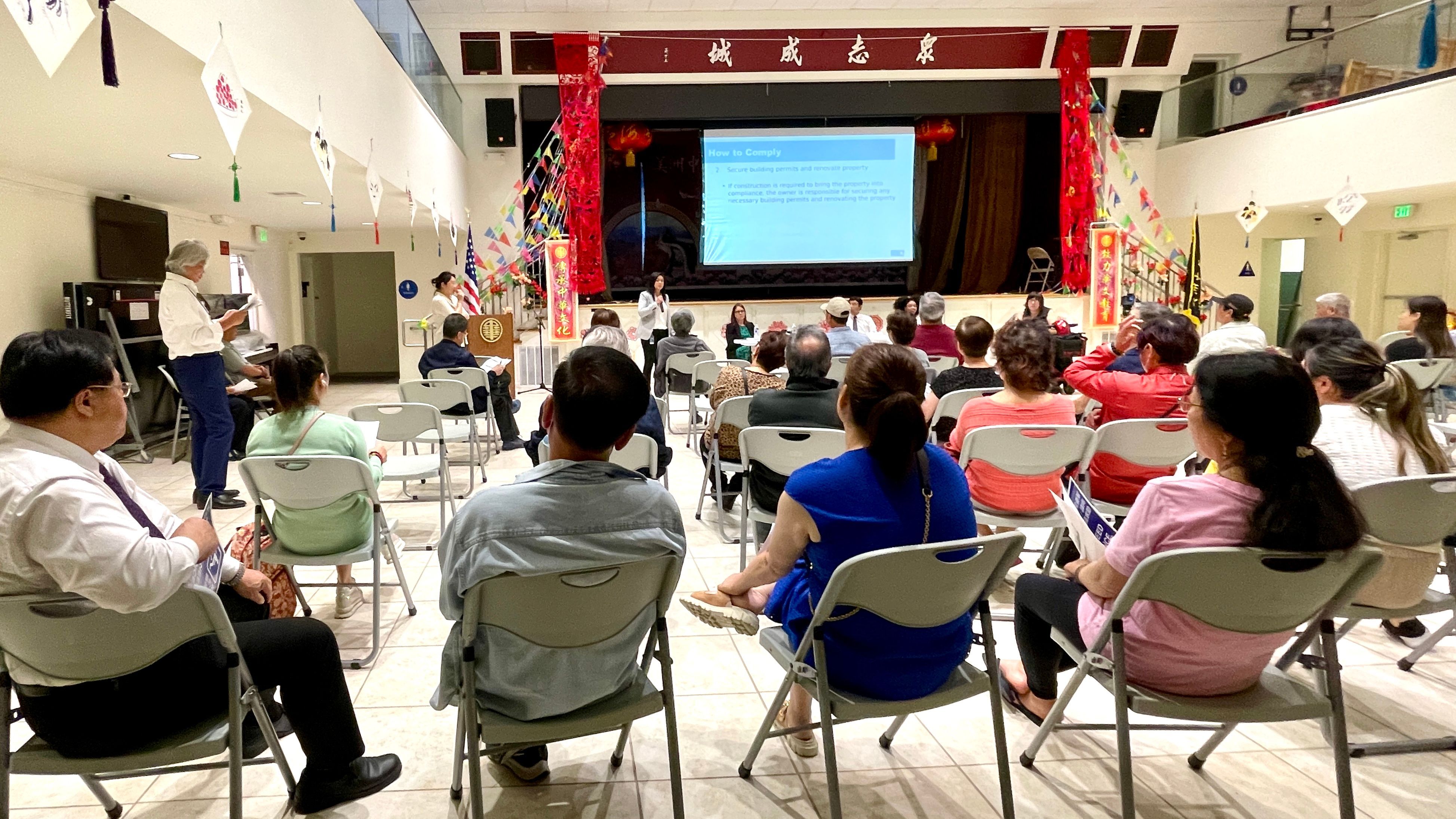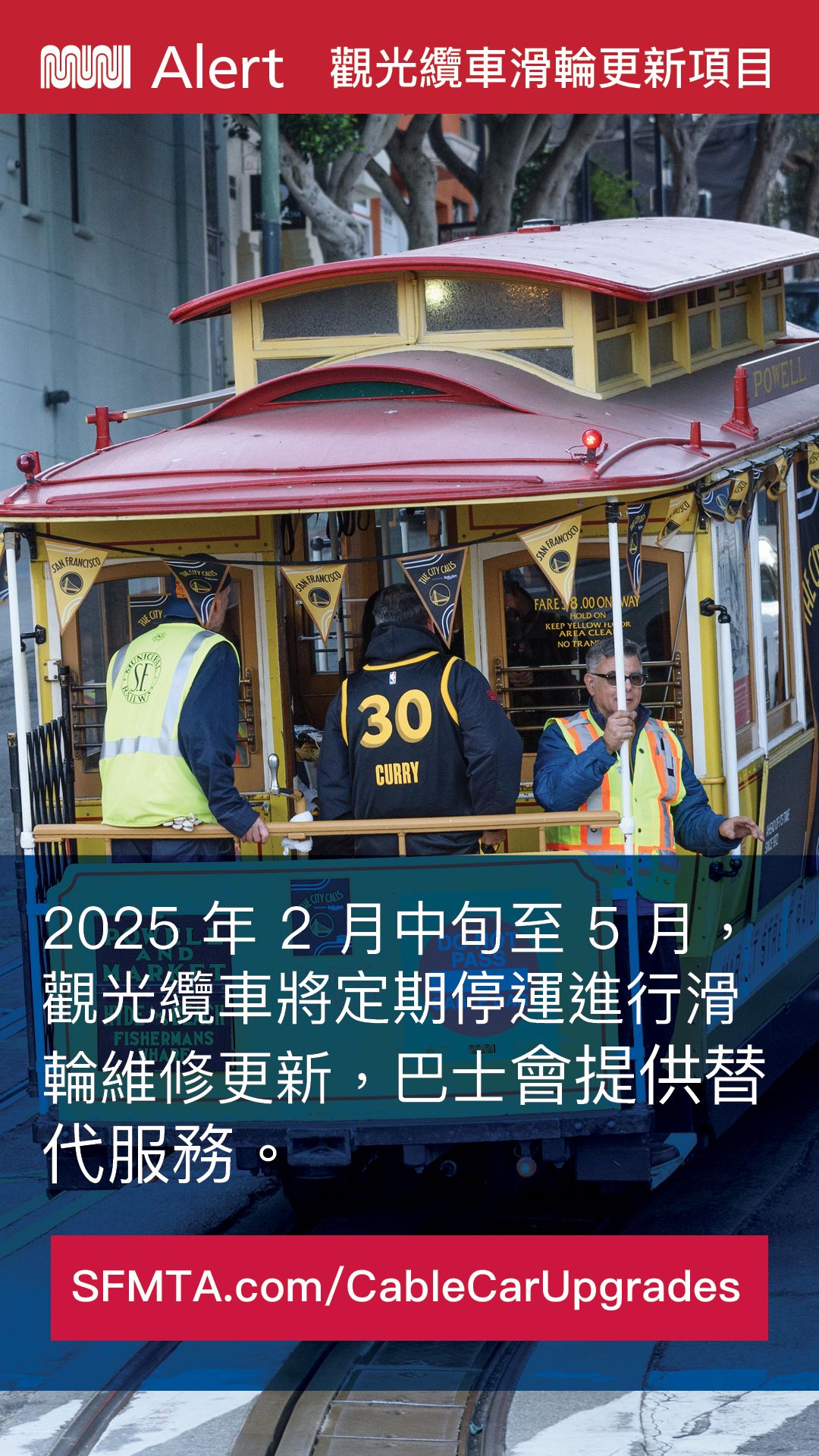Business and property owners displease with San Francisco’s 2016 law: Accessible Business Entrance (ABE) Program, DBI begins to issue notices of violation from February 2024


(SAN FRANCISCO) Business and property owners who attended the workshop in Chinatown on August 23 expressed their frustration on the San Francisco’s 2016 law, Accessible Business Entrance (ABE) Program, which requires storefront businesses to make their entrances accessible to the people with disabilities.
A representative from the City’s Department of Building Inspection (DBI) spoke in the workshop that different deadlines for the ABE program will all expire after September 29, 2023. The department would begin to issue notices of violation starting February 2024 on the ABE program to business and property owners who did not submit their applications for permits before the deadlines or involved in other related violations.
The August 23 workshop was organized by Lily Lo, CEO of the Northeast Community Federal Credit Union and Co-founder of BeChinatown, who has received multiple inquiries from the small business owners and family associations about the federal Americans with Disabilities Act (ADA) and San Francisco's ABE laws. Many family associations are also the property owners of many buildings in Chinatown
Representatives from DBI, Office of Small Business, and Office of Economic and Workforce Development (OEWD) participated in the workshop to provide more details of the laws and their services.
ABE was introduced in 2015 by former Supervisor Katy Tang, who is currently the Director of the Office of Small Business, and enacted in May 2016. The legislation has created a new program requiring owners of all buildings in the City with a place of public accommodation to take steps to ensure that primary entries would be usable by persons with disabilities.
The ordinance requires most businesses to fill out a category checklist from the Department of Building Inspection to see if they could request an exemption or apply for a waiver. If the businesses do not qualify for exemptions or waivers, they need to go forward to hire licensed architects or licensed engineers to complete the following required steps to make their store entrance in compliance with the ABE program.
The first deadline for ABE permit applications was December 31, 2022. The owners must obtain the building permits by September 29, 2023.
Janey Chan of DBI said in the workshop that the ABE ordinance was amended to extend the deadlines for one year to give more time for property owners to comply. The initial form submission deadline was June 30, 2022 which had passed. The amended application deadline, December 31, 2022, set for any necessary permits also had passed.
The next deadline, which lets the property owners obtain permits for the construction, is September 29, 2023 which will expire soon in a month.

Starting February 2024, notices of violation will be issued from the DBI to noncompliance properties, according to Chan.
The cost for any business and property owners to follow the ABE ordinance to make corrections is estimated from $4,500 to $65,000.
“The cost is too high. It is a burden for us. If the City is willing to pay for all the costs, we will follow the law to be in compliance,” Chinatown family association leader Long Zan Chen said publicly in the workshop to express his frustration. He stated that his family associations own buildings with storefronts in Chinatown, but they could not collect rents from their store tenants due to the COVID pandemic.
"We are all scared. We also want to be in compliance. The correction is required with reasonable cost. But no one talked about it. If the correction is more than $10,000. Who can take care of the hardship?" said Sherman Yee of the Yee Family Association.
"We try our best to be in compliance. Not every property owner understands English well. It takes time for the owners to go to the City's permit center to submit applications. Is it possible for the DBI to have an on-site service in Chinatown on a regular schedule to let the small business and property owners come by for service?" Yee continued.
Representatives from the Office of Small Businesses and OEWD told the attendees that grants would be offered by the City on the ABE program for up to $10,000 each owner to make repairs and upgrades with the cost of accessibility improvements.
The business and property owners responded that the amount of the grant was not much helpful compared to the huge total cost of the corrections.
“The crime in San Francisco is getting worse and worse. The city does not take care of it. Instead the City keeps targeting the small business owners, like the awning requirements and the ABE program. The City has made the small business difficult to survive," said Xin Yi Lei, a business owner in Chinatown.
- In a 52-2 vote, Chinese American Democratic Club endorses to recall Supervisor Engardio as a result of passage of Proposition K
- An amnesty program in San Francisco is back through July 1, 2025 to legalize existing awnings
- Opinion: Political betrayal warrants recall
- Do empty yellow loading zones best serve the San Francisco Chinatown community?
- T&T Supermarket, largest Asian grocery chain in Canada, announces to open at San Francisco City Center on Geary Blvd. in winter 2026
- (Breaking news: Charlene Wang wins in the Oakland's special election) Charlene Wang runs for Oakland District 2 Councilmember on April 15, 2025 to represent Oakland Chinatown
- Mayor Lurie announces plans to support small businesses including First Year Free program waiving fees for new businesses
- 12 speed safety camera systems out of 33 begin to operate in San Francisco by first issuing warnings instead of citations for 60 days






